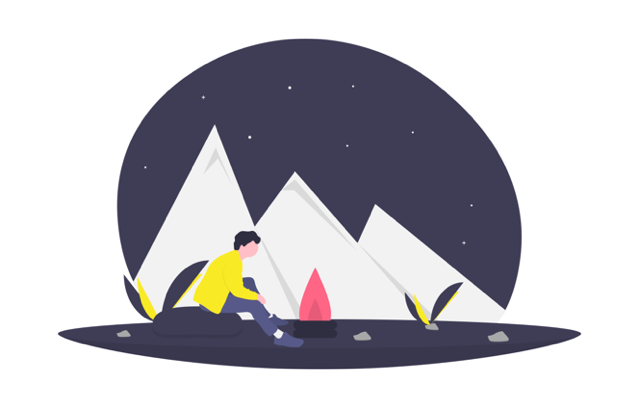SCAPI COVID-19 Guidelines
Climbing is a sport we all love, and being away from it affects our well-being. As the pandemic ravages the country, the climbing industry is dying with it. As restrictions are slowly being lifted, let’s all do our part to restart climbing responsibly.

Risk
Going out and doing activities with other people is inherently risky during this time, but with proper precautions, we can lessen the chance of contracting the disease. It’s the same with climbing, where you can’t completely eliminate the risk, but with practice of safety procedures, we minimize it to the point that accidents rarely happen.
Ask yourself if you’re really comfortable climbing while the pandemic is still going on
- There are still a lot that we don’t know about the virus, so let’s just try our best and make use of the knowledge and practice gained all over the world so far.
- Ask yourself if you’re really comfortable climbing while the pandemic is still going on. Weigh the risks against the benefits of being able to climb again and see your friends. If you’re not yet comfortable, don’t force it! Anxiety might take away the fun.
- Sooner or later, a climber (it might be you) will contract the disease one way or another. Please don’t blame others or ostracize them. Statistically, it can happen to anyone.

Symptoms
If you have any symptoms, please stay at home. Even if you’re sure that you don’t have the disease, others won’t think the same and they’ll be bothered by it, affecting their enjoyment.
-
If you’re in direct contact with someone with symptoms, stay at home as well. If your contact turns out to be COVID-positive, it’s very possible that you contract it, too.
-
Check out this guideline on how long to self-isolate.
If you have any symptoms, please stay at home

Physical Distancing
Mind your distance (at least one meter) from other people at all times. (If they’re in the same household as yours, it’s fine, but other people might not know.)
Mind your distance (at least one meter) from other people at all times.
- Do “air tseks” for now. Avoid hugging or fist-bumps, no matter how ecstatic you are in your send.
- Follow the markers indicated in climbing gyms of where to stay and where to walk.
- Do safety checks at a distance.

Mask
Wear a mask at all times, except when drinking or eating.
- Bring extra masks because with sweating, your mask can get wet, making it ineffective.
- While the WHO recommends not using a mask while exercising, climbing gyms are usually enclosed spaces, so to be on the safer side, keep your masks while climbing. Wear masks that are fairly breathable (like surgical masks) to reduce discomfort.
- When climbing outside, it should be fine to remove your mask while climbing, just remember to put it back on immediately after a climb.
Wear a mask at all times

Chalk
You might have to use liquid chalk when climbing indoors (as required by the gym). This is not for sanitization, but for lessening air particulates, which might increase the chance of spread of the virus. Reduction in particulates might also help reduce respiratory issues, which helps lessen COVID-19 complications for those who contract it.

Sanitization
Bring your own sanitizer and sanitize your hands frequently, especially before and after climbing or belaying.

Equipment
Avoid sharing of equipment, especially rope in lead climbing because that’s where contact and spread is most likely as you’re directly holding it with sweat (not to mention that it’s usually bitten when clipping). If you live in the same household, then it should be fine.
If you must share a rope, assign an end of the rope to only one person.

Outdoor Climbing
Check if the crag and its approach are open. Coordinate with the local community or government to ensure that ordinances are followed.
Cooperate with your local climbing community to avoid overcrowding in crags so that physical distancing is maintained.

Review
It might’ve been a while since you last climbed, so please review your skills with regards to safety, like belaying and tying a knot.

Local Policies
Please be aware of rules in your locality.
- If you’re climbing in a gym, follow their policies.
- If you see others not following the precautions, gently let them know.
- If you’ve been called out by others, don’t be upset. Everyone understands that we all are still adjusting.
Changes
The guidelines here can change as more scientific evidence and practical experiences are gathered. Please check out our website and social media channels for updates.
Illustrations by Ouch!
